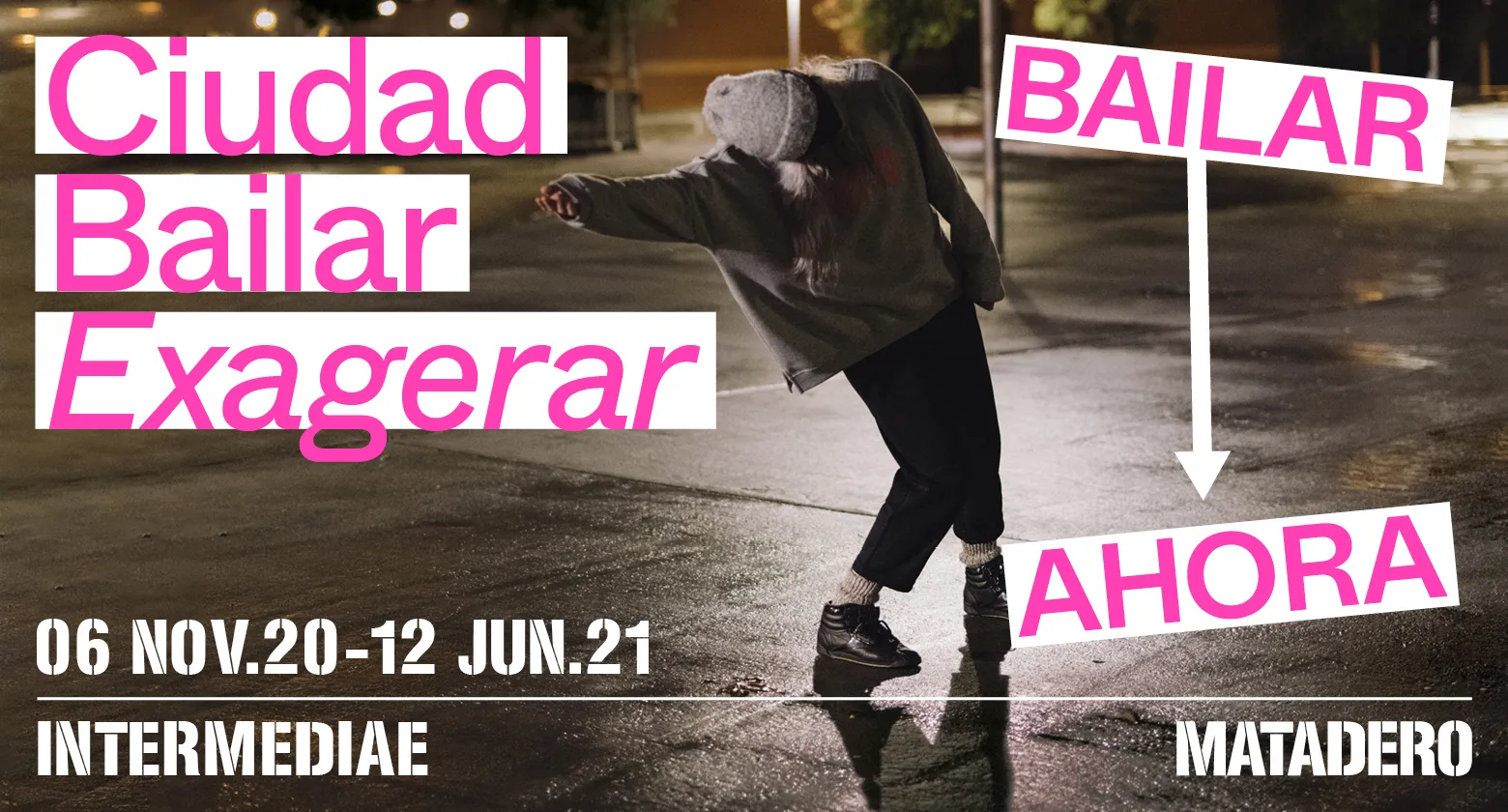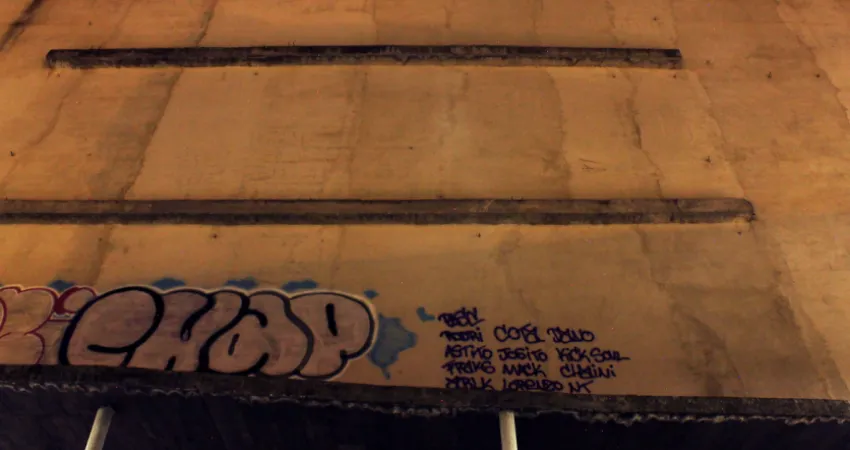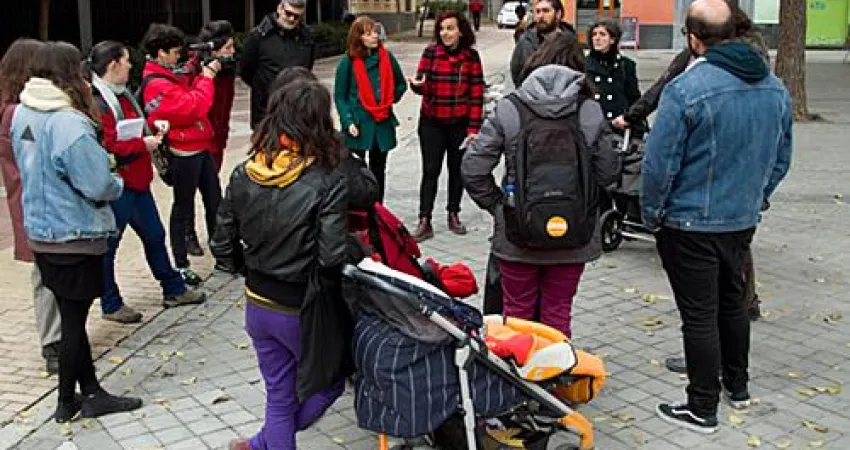Descripción
A danceable installation, a festival, workshops, open rehearsals, micro-shows and Radio Ciudad Bailar.
Dancing is very similar to getting goosebumps. It’s a discharge of electrified air that passes through our body and frees our movements from conscious choices. Dancing also has something in common with yawning. That intimate and empathic grimace that stretches us, deforms us and alleviates us, all at the same time. Dancing, just like getting goosebumps or yawning, cannot be forbidden. It may be subject to regulations, limitations, protocols or labels, but it will still manifest itself as a chain reaction that connects the depths of our being with what surrounds us.
Even in times of confinement, empty dance floors and postponed festivals, within the walls of our homes we dance the choreographies of new routines and frictions, balcony rituals and taking turns to use public spaces, as if it was a jam circle. We dance via video conferences, social networks, in virtual and digital spaces of all kinds, we throw online parties and we live new dimensions of musical encounter. Social choreographies of injustice, exclusion and oppression are also produced inside and outside the states of alarm.
We discover dancing as a frontier where opposing forces meet: on the one hand, an aggregating power and an extraordinary strength for building communities, and on the other hand a monumental ability to generate controversies. In short, we can find in dance a force that centrifuges what exists, it shakes it up, it cuts it up into pieces and then it puts it all back together again.
Ciudad Bailar - Exagerar (Dance City - Exaggerate) proposes an approach to these ideas, understanding the act of dancing as a hyperbole of our lives, as a material and symbolic expression of an institutive imaginary, as a laboratory that creates worlds through exaggeration. An exaggeration that expands the limits of what is possible and it invites us to think about the power of dancing to produce variations of reality, to amplify bodies and to cause identities to overflow.
Massimiliano Casu and Carlos López Carrasco
Upcoming dates
Laboratories and workshops
We (Still) Can Dance
Esther Rodríguez-Barbero
14 November 2020, midday to 2pm.
Book your place by filling in this form
What has happened to bodies that dance? This lab is proposed as a space in which to reflect through dancing on the current norms that regulate the movement of bodies. Every movement has been incorporated into a social choreography. How can we subvert it, activate it, move it, vibrate it and expose it? How do personal spaces expand and contract in public spaces? Dancing at a distance. Finding clandestine places where we can remember what activates the power of dancing bodies and how it does so. How does the disappearance of spaces and events designed for dancing affect those bodies? Searching for that moment before the dance gets going, the moment it starts, and from that moment, creating a vibration between matter and the spaces created between bodies. The laboratory is a continuation of the piece ‘We Can Dance’, which moves between what is possible and what is forbidden by laws that regulate or prohibit the act of dancing in different places.
Esther Rodríguez-Barbero is a performance artist, choreographer and architect. In her work, which moves between choreography, stage work, storytelling, performative events and architecture, she employs principles associated with those disciplines in order to design spatial and social practices. She is researching dance as a place of emancipation. She studied contemporary dance in parallel to architecture. She then went on to obtain a Masters’ Degree in Stage Practice and Visual Culture at the UCLM-Reina Sofía Museum, and a post-Master's degree in “a.pass” (Advanced Performance & Scenography Studies).
Mal de Baile / Laboratory
Ontologías Feministas
14 November 2020, from 5 to 7pm.
Book your place by filling in this form
In these intermittent confinements, what are the new choreographed bodies like? In ‘Mal de Baile’ we will journey through different apocalyptic parties, bodies turned into tutorials and TikTokized dances, in order to reflect, from our avatars, on the cracks and limits of these virtual places in which we can still dance close to one another. In this workshop we invite you to ask us about the digital movements and choreographies that can be found on different platforms. To do so, we will play, dance, distribute screenshots and we will even pretend we manage to find ways out or endings for our new final monster: dancing the present. This will all be based on research into nightlife venues which began with a series of get togethers in which we studied legal frameworks and direct actions to tackle situations of violence in such places. Caught up in the productive enthusiasm and in the desire to keep on meeting despite the confinement, this project was translated to the virtual world, creating a virtual club called Santuario Nocturno (Night Sanctuary), and then “Mal de Baile: a Challenge” where we analyse the physical dances that the pandemic has spawned: dancing in front of computers, dancing in tracksuits, dancing on balconies.
Radio Ciudad Bailar (Dance City Radio)
Bailar Ahora (Dance Now)
13 November 2020, 6:30pm.
Book your place by filling in this form
How has the everyday life of dancers changed in this pandemic scenario? How can you dance on the streets with all these restrictions, confinements and safety measures? How are all the communities, rituals and encounters being reconstructed in the new normality?
Second Nightlife and K-Pop Resistances
20 November 2020, 6:30pm.
Book your place by filling in this form
15 years before our recent Zoom dance parties, before concerts on Fortnite and festivals on Minecraft, dozens of clubs were already up and running in the virtual world of Second Life, with all sorts of identities and aesthetics. In those spaces, thousands of avatars are still dancing away and working on managements tasks, or as PR people or as resident DJs.
Gema FB Martín, researcher, artist and musical agitator in the world of Second Life, takes us on a journey through these spaces.
South Korean pop, or K-Pop, is one of the cultural phenomena that best allows us to understand how thin and permeable the limits are between categories we could define as mainstream and underground, between commercial and critical, between happy pop and political struggle. Recently, this dense network of relationships, exchanges and alliances woven by the so-called fandom world has demonstrated its full capacity to mobilise people through a series of direct action campaigns on social networks against intolerant messages spread by some of the representatives of the extreme right wing across the globe. We will talk with @KiraRen_, a kpopper activist, about these movements, their identity and their political power.
Gemma FB Martin is a teacher and researcher, with experience in clinical psychology, clinical hypnosis and ICT applied through creative processes to mental health and collectives at risk of social exclusion. Her lines of research focus on the computational models of artificial emotions applied to social robotics and the development of therapeutic methodologies based on immersive virtual environments.
@Kiraren_ Kira or Celia has many hobbies: watching movies and series, playing videogames. She is a fan of K-Pop music (she’s also considered a kpopper) who spreads and shares both Korean culture and music with her followers on social networks. She is also an activist on these same networks, supporting and fighting for social rights, trying to raise awareness about the politics that surround us.
Eventos Musicales y Distanciamiento Social (Musical Events and Social Distancing)
27 November 2020, 6:30pm
Book your place by filling in this form
What will happen to dance events in the coming months? How are we going to reconvert the practice in schools and night discotheques? How can the public authorities respond to this? This round table proposes an approach to the challenges, perspectives and necessities that will affect the immediate future of the world of dance in all its myriad manifestations.
Laura Puente, is director of the Fussion Dac School of Ballet and Dance. A graduate of the National Ballet of Cuba, she is a pioneer in fusion dance in Madrid which is where she set up her first company. Since 2010, she has been a choreographer for the Mascara Laroye Cuban Theatre Company.
Jose Salas, an independent cultural manager, has directed several curatorial projects, promoted research and teaching activities, and organised events linked to the plastic and audiovisual arts, music, radio, or the publishing world. He is the founder of a_mal_gam_a, a cultural platform dedicated to the promotion of music, booking artists for clubs and concert cycles.
Miguel Tortajada, is an associate and project director at Fazeta Producciones. DJ, promoter and agitator of the musical scene, he is professionally and personally linked to avant-garde clubs in the city of Madrid, with many projects linked to dancing in public spaces, among which the different editions of the Drum Parade are particularly noteworthy.
Agentes
Organised by: Intermediae
A programme by Side Thinkers
Public activities programme:
Content director: Massimiliano Casu
Curatorial team: Massimiliano Casu and Carlos López Carrasco, content curator. Vanesa Viloria Álvarez, coordinator.
With the advisory committee: Aitor Casero, Antonio García,
Anwar -Tito África - Sebbah, Irie Queen, Marta Plaza, Mike Tiburón



 Intermediae
Intermediae


